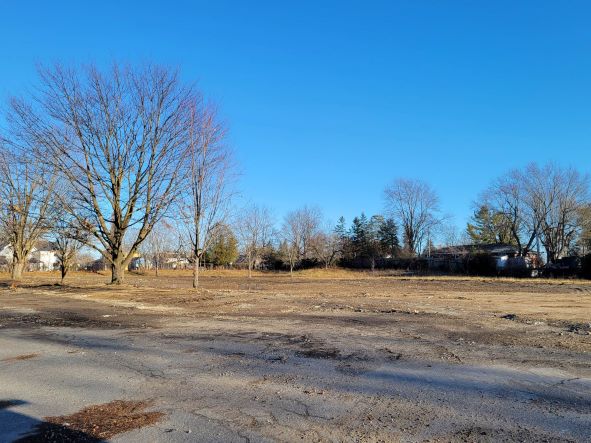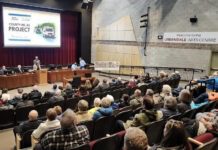

Last month, North Grenville Council took its fair share of backlash regarding the planned apartment complex to be built on the land of the former Kemptville Public School site. Some residents of the area presented specific concerns about why they felt the proposed apartment complex would be too large, too tall, or too aesthetically unpleasing. Others argued that it will be too big for the area, with not enough jobs to support the newcomers, and far too much traffic for an area where many young children live. And then there were those, myself included, who had no opinion one way or the other regarding the merits of the planned apartments, but instead felt that Council could have done a better job hearing residents’ concerns before voting on bylaws to move the project forward.
Much like any government at any level and at any point in history, the current North Grenville Council has both supporters and opponents. However, Council had enough support in the October municipal election to be re-elected as a whole, and it is no secret that the current Council members have an active presence in the community, far beyond what is minimally required of a sitting Council. I encourage anyone to watch livestreamed meetings from neighbouring municipalities, and do an internet search to attempt to find photos of politicians from these municipalities attending events. You will have difficulty, and you may be surprised to realize that, love or hate their decision-making, North Grenville at least has a Council that puts extra effort forward.
My editorial on the subject of the apartments – which heavily criticized Council for not hearing residents’ concerns over the KPS apartments – was not inspired by a hatred of the current Council, but rather by a surprise at how they handled the situation.
Last week, Deputy Mayor John Barclay sent two documents to the Times to help explain the reasoning behind the apartment complex decision-making. One was a Globe and Mail article published earlier this year that outlines a need for more high-density housing as a means to help alleviate the current housing crisis. The article actually points out the shocking fact that average home sizes in Canada are growing significantly, while the average number of people living in each household is shrinking. People are wanting bigger and bigger homes, and have difficulty letting go of the idea of a detached single family home as the only acceptable living situation. Unfortunately, our population growth and diminishing available land make it impossible for everyone to live in a large “white picket fence” house.
Change is hard, especially for residents of small towns. The residents of the Reuben Crescent area who will be most greatly impacted by the planned apartment complex brought forward real concerns. Their lives will change, with the potential for their quiet existence to become a busier and more congested one, and the small town feel of their home changing to feel more like a city suburb. Such a change would be difficult for anyone, but shouldn’t North Grenville do its part to help resolve the housing crisis? Or should high density homes be reserved for large cities only?
I don’t live in Kemptville and don’t feel that I have a right to register my own opinion, but that hasn’t stopped many others from speaking out. The problem is that when people are angry at Council, they turn out at Council meetings in droves, which can give a false sense of overall public opinion. The other document sent by Deputy Mayor Barclay was the Municipality’s housing strategy, published in May of 2022. The 98 page document has a wealth of information, but one important point is the that residents of North Grenville were surveyed, and on average, stressed the need for smaller, higher density housing. Is it possible that those who showed up to the Council meeting to express concerns over the development were actually the minority?
Council does not get a free pass for failing to adequately dialogue with the dozens of concerned residents who opposed the project and almost certainly still do. However, new evidence can be great for forming new understanding. The project decisions were not made due to Council’s hands being in developers’ pockets, as some angry residents alleged without any evidence. Instead, Council gets an A for following the research, and a D- for open communication.







Hi Brandon
Thankyou for publishing my article a couple of weeks ago, re.,” Cardiac Symptoms that some women experience”
I enjoy reading yours and David’s articles every week.
Louise Arsenault